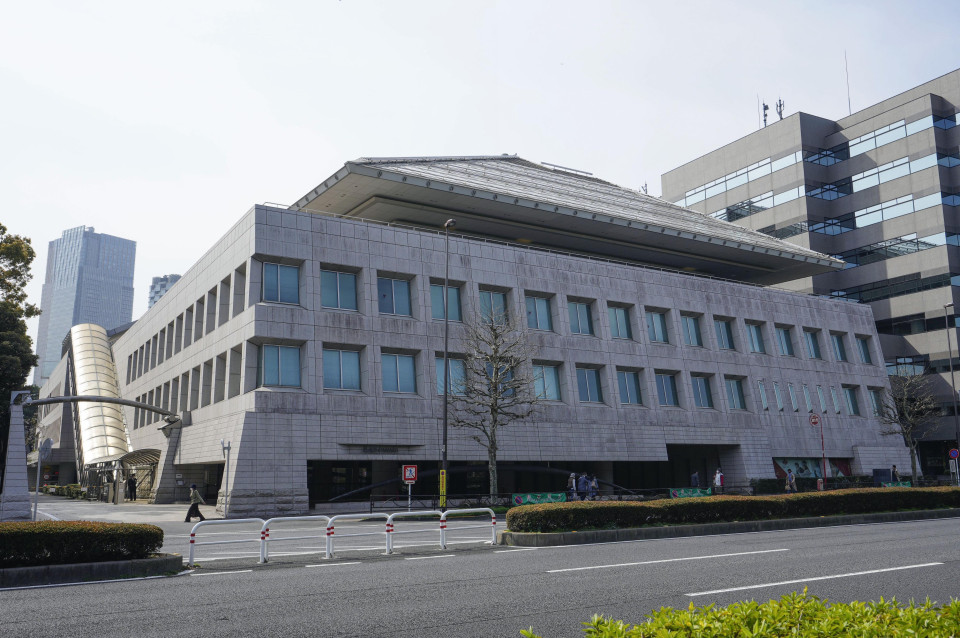Canada is calling on more Japanese companies to invest in the development in the country of critical minerals used in electric vehicle batteries in line with a bilateral agreement that could facilitate the sale in the United States of electric cars manufactured by Japanese automakers.
Ian McKay, Canada's ambassador to Japan, made the pitch after the two governments struck an agreement on battery supply chains last month as part of efforts among like-minded partners to build sustainable and reliable global supply chains for electric vehicles and batteries.
Calling the agreement "unprecedented," McKay said, "We are working with Japan as the biggest EV battery opportunity for Canada over the next 50 years," with demand for electric cars surging in a global push to cut carbon emissions.
The memorandum of cooperation, signed by Yasutoshi Nishimura, Japan's minister of economy, trade and industry, and his Canadian counterparts in Ottawa on Sept. 21, is also significant for Japan because it is the first agreement Tokyo has struck with a foreign country on storage batteries.

Building battery supply chains in Canada and the broader North American region would help strengthen Japan's economic security by reducing dependence on China, the main player in battery and EV component trade, for critical minerals.
With Canada's access to the U.S. market through free trade, the Tokyo-Ottawa deal could also lead Japanese automakers to become eligible for EV tax breaks offered in the United States, a rapidly expanding EV market, under President Joe Biden's Inflation Reduction Act.
"There is no country in the world that has an abundance of all the critical minerals necessary for the EV battery supply chain," McKay said in an interview, in reference to rich reserves of lithium, nickel, cobalt, graphite and other metals Canada holds.
"So in some ways, Japan picked the best country in the world to build its supply chain, and Canada is partnering with a country and industrial players that we know very well," said McKay, who doubles as Canada's special envoy for the Indo-Pacific.
"We are G7 partners. We are free-trade partners...And we trust each other," he said, referring to the Group of Seven industrialized nations.
Japan and Canada are also part of the Comprehensive and Progressive Agreement for Trans-Pacific Partnership, a regional free trade agreement.
The Canadian government will extend funding and other support measures for Japanese investment, especially in mining activity, which McKay said is "the most challenging at the outset."
The government-backed Japan Organization for Metals and Energy Security, or JOGMEC, will similarly assist Japanese companies in conducting such "upstream" activity and expanding "midstream" processing capacity, according to a Ministry of Economy, Trade and Industry official.

Along with the signing of the agreement, Prime Planet Energy & Solutions, Inc., a joint venture between Toyota Motor Corp. and Panasonic Holdings Corp., inked an agreement with FPX Nickel Corp. of Canada and JOGMEC on a nickel development project in British Columbia.
Panasonic Energy Co., a battery supplier to U.S. EV giant Tesla Inc., and Nouveau Monde Graphite Inc. of Canada also agreed to step up tie-ups in the development of natural graphite in Quebec in an effort to boost the supply chain for lithium-ion batteries for electric vehicles in North America.
Panasonic Energy has started talks with Subaru Corp. for an EV partnership, with the Japanese automaker eying EV manufacturing in the United States as early as in 2027.
Behind Subaru's decision to build electric cars in the United States was the 2022 Inflation Reduction Act, which is apparently intended to limit China's involvement in its EV supply chain.
Under the IRA, the U.S. government provides consumers with up to $7,500 in federal tax credits for the purchase of an electric car on condition that at least 40 percent of battery minerals come from the United States or countries with an FTA with the United States.
Two other requirements are that at least 50 percent of the vehicle's battery components must be manufactured in North America, and that the vehicle must have undergone its final assembly in North America.
The United States has given Japan a free trade-like status to allow Japanese companies to compete on a more level playing field against Washington's FTA partners. But at present, no electric vehicles made by Japanese automakers qualify for the tax breaks, according to another METI official.
McKay said the battery supply chain deal with Japan serves as a "great model" for Canada to pursue a broader and deeper engagement with the Indo-Pacific.
"It's going to be a very big market for EV batteries, EV vehicles, and I think the model Canada is building with Japan could be and should be scalable because we are both significant partners and players in the Indo-Pacific," he said. "This is a very good start for a broader regional engagement."
Related coverage:
Japan looks to promote electronic visas amid inbound tourist recovery
Nissan to make all new cars sold in Europe fully electric by 2030
Honda to adopt Tesla's charging port for EVs sold in North America

 By Ko Hirano,
By Ko Hirano,








